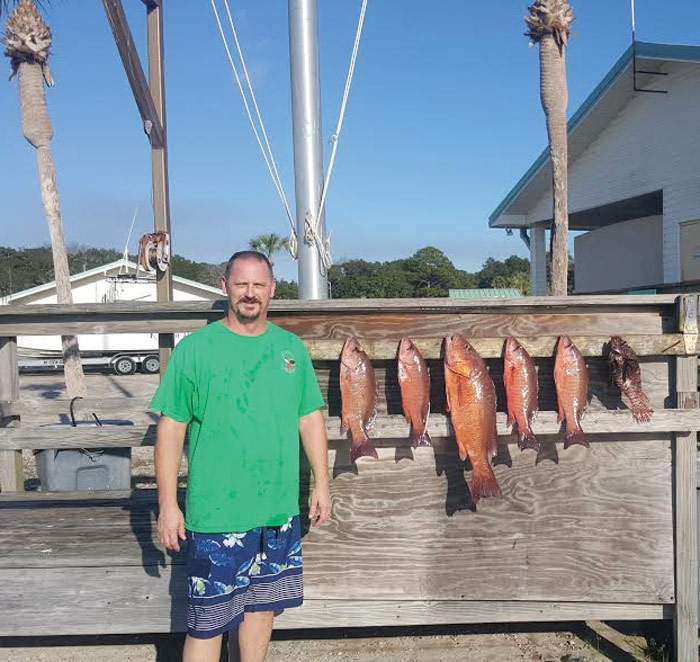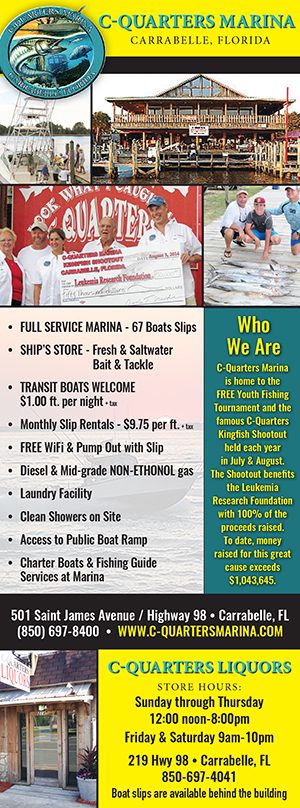
With February normally being our coldest month of the year in the panhandle, look for the water temperature to be in the mid to upper 50s. Having the right exposure suit, like a 5mm to 9mm wetsuit or even a dry suit and a place to get warm on the boat during your surface interval is necessary to keep hypothermia away.
When planning your dive in water colder than you’re used to, it is always a good idea to add 10 feet to the depth you’re actually diving in. This will shorten your dive time but you want to do this because your body works harder in cold water just trying to stay warm. You don’t always realize this is happening, so adding the 10 feet to your depth will keep you safe from getting decompression sickness.
There have been many rule changes for fishing and spearfishing so check them out at myfwc.com, or in the Florida saltwater recreational fishing regulations January edition, found in most tackle shops.
Triggerfish season is closed all year, but pay attention, FWC may open a limited harvest this year. Great barracuda are still unregulated in our waters in the panhandle, but if you venture down south, you have a slot limit and a bag limit. The barracuda is a specie that migrates south during the winter, so you won’t find them until about April up here. Hogfish may have changes coming in the spring so as always, keep an eye on the FWC website.
I was out diving to the west on some hard-bottom at the beginning of January, and came across some monster mangrove snapper. The biggest one that day was 11lbs and there’s plenty more down there. The bigger ones were under the ledges; I didn’t find them until I started looking for lobster. Though I didn’t see any lobster, the huge mangrove snappers were a great find. Don’t be afraid to look in the small tight places, you’d be amazed how a big fish can fit in a very small place in the reef.
I have found that the invasive lionfish are getting harder and harder to find on the more popular wrecks, which is great, but we are still finding them by the droves on the less popular hard-bottom sites and wrecks. Get out there and expand your dive sites; you’ll not only see new and exciting things but you can help the environment by taking as many lionfish as you can. As always, PLAN YOUR DIVE AND DIVE YOUR PLAN! Thanks for reading.
CAPT. JAMES TEW
Kitchen Pass Dive & Fishing Charters
850-896-6476

